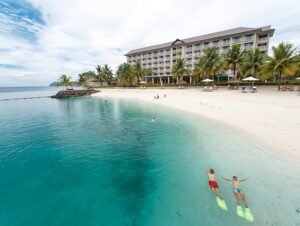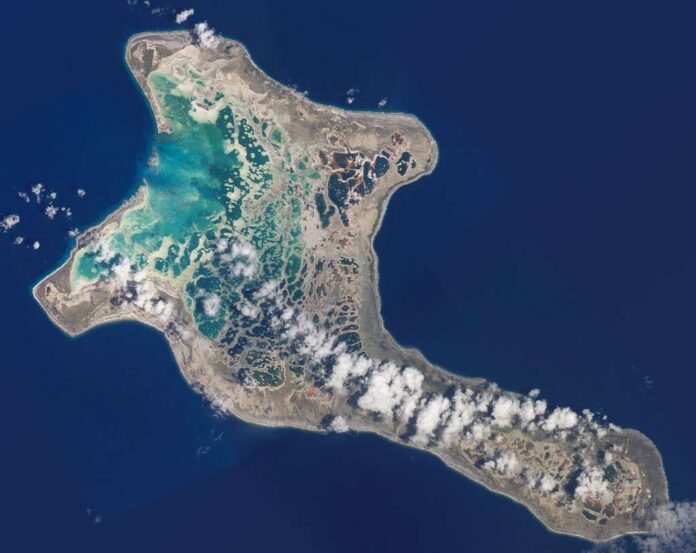Palau’s healthcare system features a unique blend of public and private health insurance options that collectively serve the diverse needs of its population, expatriates, and international visitors. While public insurance plays a dominant role in providing essential coverage for most residents, private health insurance supplements the system with specialized services and broader geographic access.
Similarities
Palau’s health insurance, both public and private, ensures access to quality healthcare. They cover inpatient and outpatient services and often include off-island referrals for specialized treatments not available locally. Both systems promote preventive care and wellness services, understanding the long-term benefits of early disease management.
Public insurance aims for almost universal coverage, while private insurers like Cigna Global, Bupa, and TakeCare serve mobile groups like expatriates. Both types may include co-payments or cost-sharing, but the extent differs.
Differences
Palau’s Healthcare Fund (HCF), launched in 2010, is the main public insurance system. It includes the National Health Insurance (NHI) and a Medical Savings Account (MSA). NHI mainly funds inpatient care at Belau National Hospital and approved treatments abroad, like in Taiwan or the Philippines. The MSA covers outpatient visits, private clinic consultations, and medications.
Public insurance is compulsory, requiring 2.5% contributions from both employees and employers. It covers over 90% of Palau’s population, including legally employed foreign workers. Managed by the Social Security Administration and overseen by a governing committee, HCF is seen as one of the Pacific’s most successful universal health models.
Private health insurance in Palau is optional and caters to specific groups like expatriates, tourists, and business executives. Companies like TakeCare, Cigna Global, GeoBlue, Now Health International, and Bupa Global provide flexible global plans. These plans offer extensive provider networks, including in the U.S., Japan, and Australia, and services such as medical evacuation and emergency assistance.
Private insurance is often more expensive, with costs varying by age, coverage, and location. Unlike national healthcare, these plans offer more flexibility but less government oversight.
Top Public Health Insurance in Palau
Palau’s healthcare is mainly public, centered around the Republic of Palau Healthcare Fund (HCF). This is the sole public health insurance, ensuring universal access to vital health services for all citizens and legal foreign workers. Here’s a detailed overview of this national scheme, including its cost, coverage, accessibility, financial structure, and public perception.
1. Republic of Palau Healthcare Fund (HCF) (Official website: https://rophcf.pw/)
- Cost:
The HCF is financed by mandatory payroll contributions. Employers and employees each pay 2.5% of the employee’s gross income, totaling 5% per worker. Self-employed individuals also contribute 5% based on their earnings. No extra premiums or fees are required. - Available Services/Coverage Features:
The HCF is composed of two main components:
- National Health Insurance (NHI): Inpatient care at Belau National Hospital and overseas treatment in Taiwan and the Philippines are covered when local services are unavailable.
- Medical Savings Account (MSA): This personal savings component is used for outpatient care, visits to private clinics, pharmaceuticals, and diagnostic tests.
- National Health Insurance (NHI): Inpatient care at Belau National Hospital and overseas treatment in Taiwan and the Philippines are covered when local services are unavailable.
- Insurance offers preventive care, annual check-ups, emergency services, minor surgeries, chronic disease management, and maternal and child health services. NHI usually covers up to 80% of approved inpatient and off-island care costs. MSA is freely usable for eligible outpatient services.
- Open for All or Limited:
The HCF welcomes all citizens, permanent residents, and employed foreign workers in Palau. Those with formal jobs are automatically enrolled, while self-employed people must register and pay themselves. Unemployed and informal workers aren’t automatically covered unless they choose to join, potentially leaving gaps in universal coverage. - Core Financial Features:
The HCF operates as a social health insurance system with a combination of pooled contributions and individual savings accounts.
- Risk pooling through the NHI ensures that high-cost care is distributed across contributors.
- The MSA gives members more autonomy over outpatient spending, promoting responsible and flexible healthcare usage.
- There is no cap on annual benefits for inpatient care, as long as treatment is pre-approved and within the service network.
- The HCF is managed by Palau’s Social Security Administration, ensuring transparency and accountability.
- Risk pooling through the NHI ensures that high-cost care is distributed across contributors.
- Consumer Satisfaction Score:
Regional reports and government evaluations indicate a high satisfaction rate with Palau’s health system. Over 90% of Palauans are enrolled, and it is often praised as one of the top public health models in the Pacific Islands. Its strengths include easy access, coverage for off-island treatment, and a predictable cost-sharing model, all of which enhance its positive reputation.
Top Private Health Insurance Providers in Palau
In Palau, private health insurance complements the national public healthcare system. It mainly benefits expatriates, international workers, business travelers, and locals desiring broader international healthcare coverage. A few international insurers offer specialized plans for residents or visitors in Palau. Here are the top five private health insurance providers in Palau, outlined by cost, service features, eligibility, financial structure, and consumer satisfaction.
1. TakeCare Insurance Company(Official website: https://www.takecareasia.com/)
- Cost:
Premiums depend on age, coverage, and plan level. Individual plans begin at $100–$250/month for basic coverage, while family and group plans are pricier. - Available Services/Coverage Features:
The services cover inpatient and outpatient care, wellness programs, emergency services, and dental and vision options. They also offer referrals to facilities in Guam, CNMI, the Philippines, Japan, and the U.S. Locally, providers in Palau ensure easy access. - Open for All or Limited:
Open to individuals, families, and employers, especially expats and regional residents. - Core Financial Features:
Co-payments and deductibles vary by plan. Most plans include direct billing within their network, easing out-of-pocket payments. - Consumer Satisfaction Score:
In Micronesia, healthcare access and provider networks are excellent. Customers value the seamless coordination of cross-border treatments.
2. Cigna Global(Official website: https://www.cignaglobal.com/)
- Cost:
Monthly premiums vary from $150 to over $600. Factors influencing this range include age, pre-existing conditions, geographic coverage (such as U.S. access), and plan customization. - Available Services/Coverage Features:
Global coverage includes inpatient and outpatient care, chronic disease management, maternity, dental, mental health, and medical evacuation. A standout feature is the ability to customize plans flexibly. - Open for All or Limited:
Open to global expats, long-term travelers, and international workers. - Core Financial Features:
Choose plans with no deductibles, complete hospital coverage, and optional vision/dental add-ons. Enjoy direct billing with numerous global providers. - Consumer Satisfaction Score:
Rated very high globally for customer service, flexibility, and plan adaptability.
3. GeoBlue (Official website: https://www.geobluetravelinsurance.com/)
- Cost:
Premiums typically range between $180 and $500/month, depending on the coverage area and service level. - Available Services/Coverage Features:
Provides U.S. and international coverage through Blue Cross Blue Shield’s global network. Includes inpatient and outpatient care, emergency evacuation, preventive care, and telehealth services. - Open for All or Limited:
Especially geared toward American expats and frequent U.S. travelers abroad. - Core Financial Features:
Provides cashless services in-network, with strong customer support for emergency claims. Multiple deductible and co-insurance options. - Consumer Satisfaction Score:
Highly rated for U.S. care coordination, ease of claims processing, and global medical access.
4. Now Health International (Official website: https://www.now-health.com/en/)
- Cost:
Premiums range from $120 to $400/month, depending on whether the plan selected is WorldCare or SimpleCare. - Available Services/Coverage Features:
Comprehensive plans cover inpatient, outpatient, dental, vision, wellness, and optional maternity care, tailored for expats and mobile professionals. - Open for All or Limited:
Open to globally mobile individuals and families seeking flexible coverage zones. - Core Financial Features:
Offers tiered coverage plans, from essential to comprehensive. Clients can customize deductibles, co-pays, and benefit caps. - Consumer Satisfaction Score:
Generally positive, praised for its plan flexibility and responsive customer support.
5. Bupa Global(Official website: https://www.bupaglobal.com/)
- Cost:
Premiums are higher, ranging from $250 to $800+/month, targeting high-income individuals and executives. - Available Services/Coverage Features:
Premium worldwide coverage with direct settlement at elite hospitals, mental health services, preventative screening, cancer treatment, and maternity care. - Open for All or Limited:
Open to international executives, globally mobile employees, and high-net-worth individuals. - Core Financial Features:
Offers comprehensive coverage with low or zero deductibles, cashless access to care, and 24/7 multilingual support.
Consumer Satisfaction Score:
Rated very high for its elite-level benefits, customer service, and medical concierge features.
READ MORE: Private and public health insurance of Nauru (Make informed choices)


